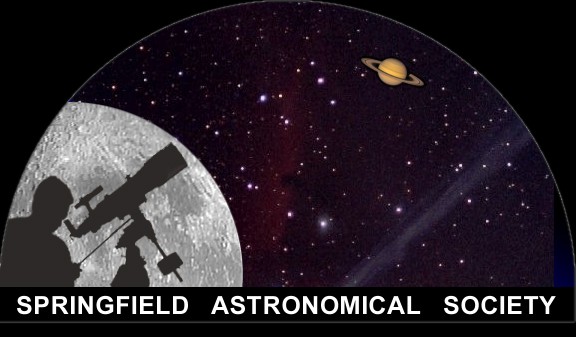3/3/2026
| Member Login: |
Collection of Astrophotos
By Club Members
<< First | << Previous 10 Pictures | Next 10 Pictures >> | Last >>
There are currently 278 astrophotos in the gallery..
Patrick Holland 6/20/2010 9:50:28 PM It's M27, albeit a bad one. out of 100 subs, I used only 30 and 9 of those were dubious. This is the problem when you image in winds gusting from 4-8 MPH. Another lesson learned. This image was taken on 5-31-10 on the Meade 10" LX200ACF scope and the Modded Canon XSi. 30-40 second subs, 25-40 second darks, 25 flats. I did take another image of M27 on the 19th and will post it when I am done processing. | Jim Aldrich 6/20/2010 2:25:58 PM M27 (Dumbell Nebula) is the first planetary Nebula ever discovered. It is about 1200 ly distant located in Vulpecula. This LRGB photo was talen last week with a Meade 14" telescope and an SBIG 11000M camera. | Patrick Holland 6/7/2010 7:05:07 PM Same M8 images as before, I just re-processed it and stretched as much data as I could out of it but rest-assured, the last time I will post the same image. |
Patrick Holland 6/6/2010 12:23:14 AM The Lagoon Nebula, taken 5-22-10 at approximately 1:30AM. The original run was 100-40 second subs. My initial processing revealed some problems of both symmetry and color. I thought the problems may have been related to a new spacing technique I was using between the Meade .63 FR and the camera chip. After talking to John, I began a painstaking process of processing all of my subs and manually eliminating 47 of the original 100. I then had Images Plus re-process the remaining subs and darks. This picture was the result. There is missing nebulosity but the core nebulosity revealed some beautiful detail... Meade 10" LX200ACF in ALT-AZ Canon XSi Rebel (Hap Modded) w/Meade .63X Focal Reducer at 55mm distance from FR to Chip. (No apparent vignetting) 53-40 Second Light Subs/20 Darks Processed in Images Plus 3.8 | Jim Aldrich 6/1/2010 10:25:51 AM I gave M5 a try before the Moon came up. Globular Clusters were once thought to be very old. M5 appears to have stars of all ages. Image taken with a SBIG 11000M camera mounted on a 14" Meade LX200ACF telescope. | Patrick Holland 5/29/2010 2:15:05 PM Hey it's M13 again! I know, it's boring but one of the very few things you can image during a full moon (if don't have a Ha filter). Anyway, this is on the hyperstar after the first round of collimation was done. It's looking better but not perfect. This was taken with the Orion StarShoot II Pro V2 and the anomalies are gone. This means the Zhumell LP filter or the Antares .5X reducer are prime suspects. Anyway, this was taken the night of 5-27-10 on the hyperstar with the Orion CCD. 100-6 second subs, 50-6 second darks with the Meade 14" LX200GPS w/hyperstar at a focal length of 700 (F2). **Note to self, do not image anymore with the hyperstar during a full moon...F2 is too fast with the skyglow. |
Jim Aldrich 5/27/2010 2:07:26 PM Here is an LRGB image of M99 in the Virgo cluster. It lies around 50mly distant and is noted for its asymmetrical arms. Image was taken through a 14" Meade LX200ACF scope using a SBIG 11000M camera. | Patrick Holland 5/25/2010 10:32:30 AM M13 during a nearly full moon. I took the time to image this on 5-24/5-25 to test some equipment. This was shot through my 10" Meade LX200ACF with the Orion SS Pro V2. I put the Antares 2" .5X Focal Reducer and the 2" Zhumell Skyglow Filter in the image train, thus this image is at F5 and FL1250. 20 Subs at 40 seconds each, 15 darks. This image is slightly cropped from the original 6.1 MP file. I have anomalies with the SSIIPro that I am trying to figure out at 9 o'clock and 11 o'clock. | John Moody http://panthercreekastro.mysite.com 5/22/2010 5:58:58 PM My first attempt at narrowband imaging. This was shot with my modified Canon 40D DSLR using an Astronomik 12nm HA filter. Best 85 subs of 100 total, 90 sec. per sub (127.5 minutes total). Shot through a Celestron NS11/Hyperstar on a Losmandy G11/C11 guided with PHD using an Orion Starshoot DSCI V2. Being able to shoot dim nebulae under a bright (50%+) Moon is great!! |
Patrick Holland 5/22/2010 10:24:40 AM Here is M8 and M20. This is a widefield shot with the Explore Scientific 80mm APO triplet. Imaged in the wee hours of 5-22-10. This was also the first use of the Asto-Tech 2" field flattener. Taken w/ES 80mm APO F6, FL480 w/Astro Tech Field Flattener piggybacked on the Meade 10" LX200ACF, Canon XSi (450D) Hap Modded at ISO 1600, 24-40 Second Light Subs, 21 Darks, Processed in Images Plus 3.8 |
<< First | << Previous 10 Pictures | Next 10 Pictures >> | Last >>
